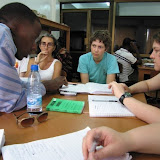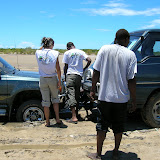Non-governmental organizations can bring complementary skills, knowledge and commitment to trade development projects, particularly those helping poor communities.
Often, blocks to exporting are not directly related to trade matters. Poverty, HIV/AIDS, disabilities and cultural isolation are examples of issues that can stop people from running successful businesses. Non-governmental organizations (NGOs) experienced in dealing with problems such as these can complement “traditional” trade development organizations to build export capacity.
In a few cases, they have led export development. For example, NGOs concerned about the effects of intensive farming promote trade in organic products.
- Ownership: Do poor communities have a voice in the organization, in both planning and implementation?
- Leadership: Is the organization committed to helping poor communities, and will it cooperate and communicate with other stakeholders?
- Financial sustainability: What is the organization’s ability to generate sustained income? Are its accounting procedures accurate and transparent?
- Capacity: What is the organization’s capacity to implement, monitor and evaluate activities?
- Services: What services (including advocacy) can the organization give to poor communities or its members or its customers?











No comments:
Post a Comment